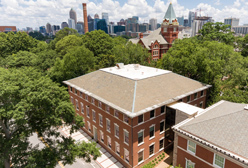New Sponsored Research
Brian Magerko was awarded $1,000,000 by the National Science Foundation for "EarSketch: Engaging African Americans in Computing through the Composition and Sharing of Musical Remixes. (See full story in features)
The Institute of International Education awarded Phil McKnight, Professor and Chair, Modern Languages, $198,108 for "Project GO: ROTC Language and Culture Project." Since Dr. McKnight has passed away, Pat McCarthy will be Principle Investigator.
Ben Medler, PhD student in LCC Graduate Studies in Digital Media will work on "Building and Understanding Player Dossier Systems for Star Wars: The Old Republic." The project was awarded $48,041 by Electronic Arts.
Doug Noonan, Associate Professor, School of Public Policy, has been awarded $15,000 by the Charles G. Koch Charitable Foundation for undergraduate research fellowships.
Other Funding
Thomas Lux has been awarded a grant for $2,700 by the Georgia Council for the Arts for general operating support for Poetry at Tech
New Books by Faculty
Toward a Common European Union Energy Policy (Palgrave Macmillan), edited by Vicki L. Birchfield, Associate Professor in the The Sam Nunn School of International Affairs, and John S. Duffield. This book provides a timely and comprehensive overview of the most recent developments in European Union energy and climate policy.
Climate Change and Global Energy Security: Technology and Policy Options (The MIT Press) by Marilyn Brown, Professor in the School of Public Policy, and Benjamin K. Sovacool, offers detailed assessments of the most advanced commercially available technologies for strengthening global energy security, mitigating the effects of climate change, and enhancing resilience through adaptation and geo-engineering.
Taiwan's Democracy: Economic and Political Challenges (Routledge), edited by John W. Garver, Professor in The Sam Nunn School of International Affairs, Robert Ash, and Penelope B. Prime. Contributors to this volume consider Taiwan’s response to China’s economic rise and show how Taiwanese companies have strategically taken advantage of the changing economic environment by moving up the value chain of production within Taiwan while also taking the opportunity to invest overseas.
This Shared Dream (TOR Books - Macmillan) by Kathleen Ann Goonan, Visiting Professor in the School of Literature, Communication, and Culture, is a new kind of utopian science fiction novel, in which the changes in history have created a present world that is in many ways superior to our own, while in other worlds people strive to prevent their own erasure by restoring the ills to ours.
Whose American Revolution Was It? (NYU Press) by Gregory Nobles, Professor in the School of History, Technology, and Society, and Alfred F. Young, speaks both to the ways diverse groups of Americans who lived through the Revolution might have answered that question and to the different ways historians through the decades have interpreted the Revolution for our own time.
Forecasting and Management of Technology, 2nd Edition (Wiley) by Alan Porter, Professor Emeritus in the School of Public Policy (and Industrial & Systems Engineering, et.al.), deals with the topic of forecasting of technology and technology management in the context of business organizations that now place a greater emphasis on technology to stay on the cutting edge of development.
Science Fiction Film, Television, and Adaptation: Across the Screens (Routledge) by Jay Telotte, Professor and Interim Chair in the School of Literature, Communications, and Culture, and Gerald Duchovnay, includes essays which help us understand what film and television achieve in screening science fiction, and to reveal some of the key issues involved in all of our efforts to navigate the various screens that have become part of contemporary culture.
What Does Georgia Tech Think?
Selected Press for Ivan Allen College of Liberal Arts
|
Boston on Job Creation
"Real quickly, and I will be drummed out of the economics profession for saying this, but we need to think about imposing a surcharge on corporations that are using QE2," says Thomas "Danny" Boston, Professor in the School of Economics, in regard to what the President and Congress should do to create jobs. Boston continues, "It's a way of keeping interest rates low and making money available for corporations to borrow and invest. What they are doing is they are borrowing it and sitting on idle cash, for precautionary reasons, but not spending. We need to encourage them to spend. We can impose a surcharge if they have this excess cash." Source: CNN, September 2, 2011
Computational Media Program Highlighted in List of Top Game Production Programs
The Computational Media major offered by the School of Literature, Communication, and Culture was among five named as the top undergraduate game production programs in the nation by the Huffington Post, along with programs at Cornell University, the University of Southern California, New York University, and the Rensselaer Polytechnic Institute. Read the full story in the Huffington Post, August 16, 2011.
Susan Herbst on Georgia Tech
"Georgia Tech is a powerhouse for economic development for [Georgia]," said Susan Herbst, a former Professor in the School of Public Policy, now President of the University of Connecticut. "Not so long ago, a university's mission was mainly to educate students, do research and serve as a 'cultural mecca' for the community, but in the last decade or decade and a half, we've started to see ourselves more as regional economic engines." Read the full article in the Harford Courant, August 16, 2011.
Levine on Dismissal of Stem Cell Lawsuit
“In terms of supporting stem cell science, this is unquestionably a victory for science and for the Obama administration’s policy,” said Aaron Levine, Assistant Professor in the School of Public Policy. “It will reduce the uncertainty surrounding the field.” Levine's comments refer to the dismissal of a recent lawsuit that challenged the National Institutes of Health's human embryonic stem cell research funding policy. Read the full article in BioTechniques, August 10, 2011.
October 11, 2011
11:00 am
October 21, 2011
12:00 pm
November 11, 2011
12:00 pm
November 11, 2011
2:00 pm
|
Message from Dean Jackie Royster
Ivan Allen College of Liberal Arts is on the threshold of implementing a dynamic vision and mission, and a host of ambitious goals. I am excited to bring this work forward to you. It reflects and refreshes 125 years of liberal arts at Georgia Tech, 20 years as primary steward of the legacy of Ivan Allen Jr., and a decade of defining a uniquely Georgia Tech approach to liberal arts.
As the Institute unfolds its 25-year strategic plan, we articulate this vision: Sustaining a global perspective of the past, present, and future, the Ivan Allen College of Liberal Arts forms a vanguard in the 21st century for interdisciplinary research, education, and innovation at the crossroads of humanities, social sciences, and technology. That vision informs our mission, our brand, and the initiatives that you will see unfolding over the coming months. These initiatives transform the college, in recognition of the active roles that we continue to play within the larger Georgia Tech community, as well as the more visible roles that we are beginning to play within our neighborhood, city, state, region, and beyond.
Key initiatives for 2011-2012 include the Allen Institute for Advanced Studies, the Allen Legacy Project, Policy@Tech, the Center for Latin American Studies, and more. Be on the lookout for more details about activities and opportunities, and know that the Ivan Allen College is on the move.
There have also been key changes. In five of our six schools, we have experienced changes in leadership. Fortunately, we have the kind of “bench strength” to keep our efforts in forward motion with wonderful colleagues who have accepted the mantle of leadership and who can provide fresh ideas for growth and innovation. Among these changes, this past month we bid a painful farewell to our friend and colleague, Phil McKnight, who passed away unexpectedly. Phil’s vibrance and vision will be greatly missed. In true Georgia Tech spirit, however, Phil kept a constant eye on what might be ahead, and he leaves us with a legacy in the School of Modern Languages on which we will continue to build.
What we can all count on, then, is that the IAC leadership, faculty, and staff are working conscientiously to keep our stride, to advance our priorities, and maintain always our commitment to excellence, even in the face of tighter budgets. Our business as usual is that we have gotten off to another great start this year with every expectation that 2011-2012 will be yet another banner year. Throughout all, we are ever grateful for the ongoing support and generosity of IAC donors and the interest, engagement, and advocacy of our IAC Advisory Board.
In times of trial and change, we remain excited by our prospects and possibilities, and we are moving forward with joy and enthusiasm.
|
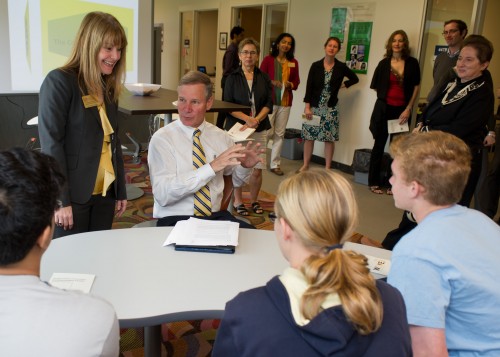
|
New CommLab is Creative Space for Practicing Communication
From teleconferencing to YouTube videos, project posters to green-screen presentations, slide design to report writing, the new Communication Center is designed to help Georgia Tech students develop professional competence in 21st century communication.
The center has been designed as a leading-edge model for communication education. It uses conventional technology in unconventional ways.
“This is a creative space,” explains Karen Head, who is Director of the Communication Center and Assistant Professor in the School of Literature, Communication, and Culture (LCC). “Yes, we are coaching students in processes and strategies and techniques, but we are also providing the space and equipment needed to practice.”
The Communication Center’s main space, CommLab, is in Clough Commons room 447, but the center includes a suite of rooms with meeting areas, computer workstations, and four rehearsal studios. Each studio reflects a different presentation style – from formal IBM to laid-back Google – and each is equipped with video capture and playback that allow students to review and refine their performance. The Communication Center was designed by an Institute-wide Task Force, chaired by Rebecca Burnett, Director of the Institute’s Writing and Communication Program.
The center may prove an oasis for students because they define what they want to work on and choose whether to work individually or in groups, with coaching or without.
“We intend this to be a safe place for students to experiment and take risks,” said Head, “without the pressure of assignment deadlines and grades.”
Part of the Institute’s Writing and Communication Program (housed in the IAC School of Literature, Communication, and Culture (LCC), the center’s staff focuses on the program’s WOVEN approach, working across every form of communication modality — written, oral, visual, electronic and non-verbal. The physical resources encompass virtually any medium. Faculty can provide coaching in strategies and performance, guidance in brainstorming and collaborative planning, and individual and small group tutoring.
Head is careful to note that the center is not a “fix-it shop.” Rather than remedial work, the emphasis is on keeping students apace with what’s next in technology. Overall, the center is a place for all students at all levels to find ways to be better communicators.
The Communication Center’s first goal is to serve undergraduate and graduate students; ultimately, it will also be a resource for faculty and staff who wish to improve their communication skills. Its mandate and location complement Georgia Tech’s Academic Success Program and the Library’s software/media training resources.
Head’s team is comprised both of professional tutors who are Brittain Postdoctoral Fellows from the Writing and Communication Program and of undergraduate peer tutors. Future plans include graduate student tutors, research tutors from the GT Library, and ESL tutors from the GT Language Institute.
The center is one of the few in the country that is run by tenure-track faculty. IAC Dean Jackie Royster advocated for that – a center explicitly built on research, with research as an explicit and expected outcome. Head and her team will conduct communication research that focuses on writing and communication theory and practice. Initially, the research will illuminate how members of a communication ecology present their literacies to others through self-promotion and effacement and how these interactions affect the development of budding scientists, engineers, and humanities scholars.
For fall term, the Communications Center is open for scheduled and drop-in appointments six days a week: Mondays 9 am – 9 pm, Tuesdays & Thursdays 9 am – 11 am & 12 pm – 9 pm, Wednesdays 11 am – 9 pm, Friday 9 am – 3 pm, Sunday 5 pm – 9pm.
Read more about Karen Head, Director, Communication Center
PHOTO: President G. P. “Bud” Peterson took part in a demonstration tutoring session guided by CommLab Director Karen Head (standing on left) and Rebecca Burnett (standing on far right) during the facility's Grand Opening September 28
|
NSF Grant Will Establish One of Nation’s 1st Cross-Disciplinary Energy PhD Programs
Public Policy’s Marilyn Brown and Doug Noonan are Co-PIs on a Georgia Tech team that has been awarded a 5-year, $3 million grant from the National Science Foundation (NSF). The project will establish at Georgia Tech one of the nation’s first truly, interdisciplinary PhD programs in energy science, technology, and policy.
 Funded under the NSF Integrative Graduate Education and Research Traineeship (IGERT), the program will serve a critical need for the development of new, more efficient materials to address energy challenges during the next several decades. Specifically, it will examine Nanostructured Materials for Energy Storage and Conversion to create advanced energy technologies such as lighter batteries and more efficient solar cells. Funded under the NSF Integrative Graduate Education and Research Traineeship (IGERT), the program will serve a critical need for the development of new, more efficient materials to address energy challenges during the next several decades. Specifically, it will examine Nanostructured Materials for Energy Storage and Conversion to create advanced energy technologies such as lighter batteries and more efficient solar cells.
Current curricula for materials used in energy applications are based solely on training in the physical sciences. Noonan and Brown, in collaboration with Elsa Reichmanis (PI), Samuel Graham, Seth Marder, and Gleb Yushin (Co-PIs), maintain that the successful development of these materials can only make an impact if other critical issues in energy policy, manufacturing, and commercialization are considered early on in the process. With energy-economic models, input-output analysis, and other tools, students will evaluate the speed and extent that new and improved technologies can penetrate the US market, and the ability for possible future policies to accelerate technology adoption. Training on the use of these tools will be part of the IGERT education.

The first ten students started this semester. “The IGERT is bringing together a large number of top-notch scholars from a variety of disciplines and specialties to address some major societal challenges, namely energy problems and potential for nanotechnology to contribute to solutions,” said Noonan. “Students will work with faculty mentors in their own discipline, as well as faculty and doctoral students from other departments and specialties. It’s a great opportunity for cross-training and learning in a diverse team environment. In some ways, part of our energy problems stem from current scientists, policymakers, and others being confined to their "silo" of expertise; the IGERT will break down those silos for the next generation of leaders in this area.”
By integrating these topics into the PhD students’ research programs, Georgia Tech will provide holistic training in energy-related disciplines, to prepare future leaders in energy science, technology, and policy.
Marilyn Brown is Professor and Doug Noonan is Associate Professor in the IAC School of Public Policy.
|
Magerko Awarded $1M NSF Grant to Improve Computer Science Education for Minorities
EarSketch, a new NSF-funded project in the Ivan Allen College of Liberal Arts, will try to encourage African American grade schoolers to learn computer science by teaching them to write computer code for remixing hip hop music.
“We believe that by leveraging the collaborative nature of remix composition and musically-oriented computer programming EarSketch may provide a successful alternative to the cultural issues that computer games have in the engagement of minorities,” said Brian Magerko, who is Assistant Professor of digital media in the IAC School of Literature, Communication, and Culture and Principle Investigator on the project. Working with Magerko is co-investigator Jason Freeman, Assistant Professor of music in the College of Architecture School of Music.
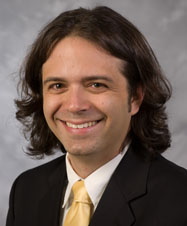 The project involves development of a software package and curricula. Students will be taught how to use a digital audio workstation to control musical loops and beats by writing small bits of programming code. The project involves development of a software package and curricula. Students will be taught how to use a digital audio workstation to control musical loops and beats by writing small bits of programming code.
“We’ll also provide online resources through which students can share their works, encouraging them to learn to remix with other students’ codes and sounds,” said Magerko. “The end result will be music that they can be proud of and that helped students learn introductory concepts in computer science.”
Funded by the National Science Foundation’s Computing Education for the 21st Century (CE21) Program, EarSketch: Engaging African Americans in Computing through the Composition and Sharing of Musical Remixes will be piloted in 2014 in Atlanta's Lanier High School.
Photo: Shannon Yao and Tom Jenkins, graduate students in the LCC Digital Media program, working on development of EarSketch software.
|
Phil McKnight, Modern Languages Chair, Passes Away
|
|
Phil McKnight, Professor of German and Chair of the School of Modern Languages in Ivan Allen College of Liberal Arts passed away unexpectedly on September 7. He was 69. McKnight joined Georgia Tech as chair in August 2001 and rapidly transformed the Institute’s 107-year old modern languages curricula into one of the nation’s premier programs. Today, his ground-breaking applied language and intercultural studies approach attracts 21% of Georgia Tech students to language studies compared to the 8% national average. McKnight expanded the school’s language curricula from six to nine languages including Arabic and Farsi. He oversaw the growth of the joint major in International Affairs and Modern Languages from six students to well over 150. In 2005, he established the joint degree in Global Economics and Modern Languages and in 2010 the BS in Applied Languages and International Studies (ALIS) in Modern Languages. McKnight forged connections throughout the College and Institute resulting in the creation of key programs. He initiated the International Plan combining international internships with study abroad for students in engineering and computing and currently integrated into 26 majors. Even before the Work Abroad Program started in 2005, he sent students to Germany and Japan on internship programs, which have continued to be successful programs today. He fostered continued growth of the school’s signature Languages for Business and Technology (LBAT) faculty-led summer study abroad programs conducted in the target language. He also forged vibrant partnerships with our ROTC programs supporting the military’s emphasis on foreign language competency. McKnight was a forceful advocate for modern language studies framed in the many contexts in which other languages are spoken, and he emphasized the critical competitive edge they provide to 21st century students entering the global workforce. German Professor Bettina Cothran said, “Phil’s vision and tireless work have been an inspiration to us all. Above all, however, Phil has been a human being of greatest integrity, wisdom, with a generosity of heart that encompassed his entire 'family' at Modern Languages. His untimely and unexpected passing leaves us with a profound sense of loss, but also a call to continue to build the School of Modern Languages into a place which creates opportunities for students, faculty, and staff to reach their highest aspirations.” McKnight’s research interests included East German writers, contemporary literary representations of history, late 18th century literature, and applied language learning in the context of the global economy. He received major awards and grants from sources including International Institute of Education ROTC Project GO, DOE Business and International Education and Title VI, Fulbright, International Research & Exchanges Board, Woodrow Wilson, and National Defense Education Act. He is survived by his wife Ulrike Hahn-McKnight, two daughters, Anna and Ursula, a son Lukas Hahn, his mother Dortha Evans McKnight, his siblings Laurie, Jill, and Stephen, and a nephew Nathaniel. A private service was held for the family. They were present for a commemorative celebration of Dr. McKnight's work and life that was held on campus September 15 in the Swann Building, home to the School of Modern Languages. Memorial Fund The McKnight family has requested that gifts in memory of Dr. McKnight be made through the Georgia Tech Foundation. The funds will be directed to the Phil McKnight Memorial Fund, which will be used to honor his legacy of accomplishments and visionary leadership in the form of a commemorative tree planting on campus and through a scholarship to benefit students who study abroad in his ground-breaking applied language and intercultural studies program. Check contributions for the memorial should be made payable to the Georgia Tech Foundation and sent to Dr. Juan A. McGruder, Director of Development, Ivan Allen College, Atlanta, GA 30332-0525. Sentiments may be shared on line at: http://obits.dignitymemorial.com/dignity-memorial/obituary.aspx?n=Phillip-Mcknight&lc=7119&pid=153620943&mid=4810295&locale=en_US |
McCarthy Named Interim Chair of Modern Languages
Professor Pat McCarthy will serve as interim chair of the School of Modern Languages in collaboration with Modern Languages associate chairs.
McCarthy has just completed a decade as Chair of the School of Economics. Joining him in ongoing leadership of ModLangs are three Associate Chairs David Shook (curriculum); Vicki Galloway (research and assessment); and Bettina Cothran (international programs). Together they form the transitional team for 2011-2012 and will work with others across the ModLangs and beyond to ensure that the vision and priorities of the school continue with high levels of excellence.
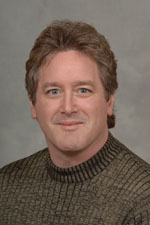 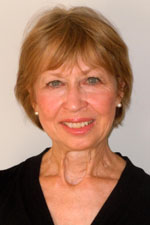 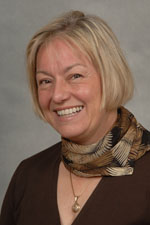
David Shook Vicki Galloway Bettina Cothran
|
"It Gets Better" Premiere to Heighten Awareness of LGBTQ Bullying and Suicides
The Georgia Tech Pride Alliance and the Writing and Communication Program will premiere Georgia Tech’s “It Gets Better” video at an event October 10, 7:00pm in the Student Center Ballroom. The video and event activities support a national movement to reduce bullying and suicides among Lesbian, Gay, Bisexual, Transgendered, and Questioning (LGBTQ) youth and correspond to the National Coming Out Day October 11.
The screening will kick off Georgia Tech Coming Out Week and is part of a Jesse Stommel, a Marion L. Brittain Postdoctoral Fellow in the W & C Program, is one of the co-producers of the video and event and discussed their role in campus diversity. "Georgia Tech is at an important threshold when it comes to diversity. While there is an increasing sense of safety and inclusivity for LGBTQ students and faculty/staff, I think it's crucial right now for us to create a more open dialogue around these issues.”
Stommel sees the Georgia Tech” It Gets Better” video as an important step toward starting the conversation, but said that it is “even more important for us to assemble as a group at the premiere to show support for our diverse Georgia Tech community."
Julie Champion is an undergraduate and president of the Georgia Tech Pride Alliance and co-produced the event. "As a senior undergraduate student, I have seen the changes that Georgia Tech's community has experienced in just 5 years with regards to LGBTQ inclusivity. There is a momentum that started in the last few years that needs to be continually supported and constantly fueled. Attending events during the week of October 10th-14th are several simple ways to be a part of the movement that is taking off here at your school!"
Read more about the event activities and “It Gets Better”
|
Winders Wins Awards for Works on Food Politics
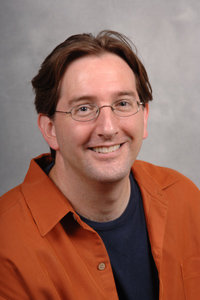
William P. Winders, Associate Professor of Sociology in the School of History, Technology, and Society, has won two prestigious awards for publications on food politics.
For his 2009 book The Politics of Food Supply: US Agricultural Policy in the World Economy (Yale University Press), Winders won the 2011 Book Award from the Political Economy of the World-System (PEWS) section of the American Sociological Association. This annual award recognizes scholarship in global, international, or comparative sociology. In recognizing Winders, the award committee noted, "It was a competitive year for the book award, and we are pleased to recognize your work as particularly outstanding within this field."
Winders' article "The Vanishing Free Market: The Formation and Spread of the British and US Food Regimes" (Journal of Agrarian Change, 2009), was recently recognized with the Bernstein & Byres Prize for Best Article in JAC in 2009. The article was judged on quality as works of political economy, analytical power, originality, and quality of evidence presented and its deployment. Winders' article, published by WileyBlackwell, builds upon the pioneering work of Harriet Friedman and Philip McMichael on international food regimes, by adding the politics of capital in differing agrarian branches within Britain and the United States, as well as considering the class alignments that underpinned the food regimes in those countries during their periods of hegemony in the capitalist world economy.
|
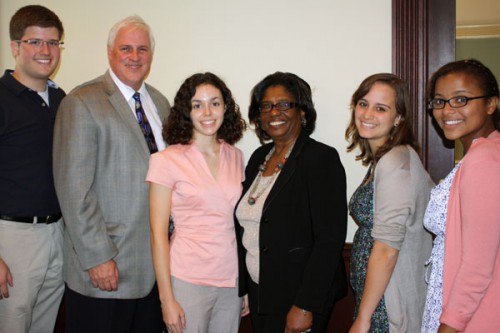
|
IAC Announces Inaugural Recipients of Dean's Scholarships
The Ivan Allen College of Liberal Arts is proud to announce the inaugural recipients of our Dean's Scholarships.
Five incoming freshman were selected for academic year 2011/2012. They are: Thomas Marion, Lauren Llerandi, Enn Sapp, Chloe Stargel, and Katerina Jenkins. (Pictured left to right with Associate Dean John Tone and Dean Jackie Royster. Ms. Jenkins is not pictured).
More than 160 high school students competed for the scholarships. They are awarded to incoming freshmen with a record of academic excellence, visionary leadership, and outstanding public service.
Dean Jacqueline Royster said, “We are so very proud to welcome this first cohort of young scholars. It is our privilege to enlarge their opportunities to be among the innovators and problem solvers, the top tier leaders and global citizens that graduate from our technology-centered liberal arts degree programs.”
Scholarship recipients receive a $2000 award their first year, with opportunity to continue the scholarship, based upon merit, for three subsequent years. In addition to the financial award, Dean's Scholars meet personally with Deans Royster and Tone, as well as Georgia Tech executive administrators and faculty. They also enjoy special opportunities designed to enhance their development as problem solvers, innovators, top tier leaders, and global citizens.
Application for Dean's Scholarships is a competitive, merit-based process. Up to six new scholarships will be awarded each spring to high school students who enroll for fall semester in majors within the Ivan Allen College of Liberal Arts.
|
"Run of the Red Queen" Fueling Debate About China's Innovation
"Run of the Red Queen: Government, Innovation, Globalization, and Economic Growth in China" (Yale University Press), the new book by Danny Breznitz and Michael Murphree is having a good run of its own, fueling debate about the future of China's economic ambitions.
The book has been reviewed by The Economist, AAAS Science Magazine, and most recently, was the focus of a lengthy interview with the authors in the New York Times Economix blog. Breznitz is Associate Professor and Murphree, a PhD student, both in The Sam Nunn School of International Affairs.
The following is an excerpt from the NYT Economix interview titled, "Moving China Up the Value Chain" by David Barboza.
SHANGHAI — In “Run of the Red Queen,” a new book about China’s innovation drive, Dan Breznitz and Michael Murphree lay out a contrarian view of this country’s path. They argue that China should worry less about coming up with breakthrough technologies and focus more on what it already does best: making incremental innovations in everything from manufacturing to logistics.
 The authors, both at the Georgia Institute of Technology — Mr. Breznitz as an associate professor of international affairs and strategic management, and Mr. Murphree as a doctoral candidate — say China has shown strength in process innovation and creating new manufacturing systems. Rather than trapping China in low-end manufacturing, they say, these capabilities will power the Chinese economy for years to come and eventually allow China to move up the value chain. The authors, both at the Georgia Institute of Technology — Mr. Breznitz as an associate professor of international affairs and strategic management, and Mr. Murphree as a doctoral candidate — say China has shown strength in process innovation and creating new manufacturing systems. Rather than trapping China in low-end manufacturing, they say, these capabilities will power the Chinese economy for years to come and eventually allow China to move up the value chain.
Indeed, they argue that the Chinese government’s push to compete with the United States and Europe on novel ideas and breakthrough products may be wasteful and inefficient, partly because of government interference but also and because China has not yet reached an advanced stage of development. Here are excerpts from an interview with the two authors.
Q. In “Run of the Red Queen,” you argue that China’s innovation drive is surprisingly strong, but not in the traditional way we think about innovation as novel technologies or products. How is that so?
Dan Breznitz: One thing truly important to understanding China is the defining characteristic of today’s globalization: the fragmentation of production. Today, places specialize not in specific industries but specific stages or activities within those industries.
In different places — Taiwan, the U.S., South Korea — there are different stages of production in each industry. The next logical step in thinking about innovation, since industries are fragmented, is that different places need different systems and different kinds of innovation. China excels in different kinds of process or manufacturing innovation. This includes design for manufacturing, organization of production, sourcing and logistics.
China’s companies are extremely efficient at creating new versions, often simpler, cheaper and more efficient, of technologies and products shortly after they are invented and marketed elsewhere in the world. For instance, I can’t think of any company in the world that can have over 200,000 people in one location producing a wide array of electronic gadgets for multiple companies other than Foxconn in China.
The American military, the best fighting machine in the world, can hardly move 200,000 people into the exact locations it wants them in months, but this company moves engineers and production workers from line to line and product to product with amazing efficiency. This is production innovation. China does innovate.
In novel-product innovation, China is very weak. There’s no way around it. The central government is the main antagonist in the process. The political economic institutions and system in China make it so entrepreneurs can’t make profit by developing novel innovation. But this same system makes process and second-generation innovation very profitable and successful.
China doesn’t need to crave novel innovation. For China’s stage of development, with the amount of people it has, the size of the labor force, and the skills developed by China’s education system, this is a vastly smarter utilization of its muscle and brain power.
Q. Mr. Murphree, is China’s innovation drive misunderstood?
 Michael Murphree: Michael Murphree: There is a tendency in the business literature and discussions to equate innovation with invention, measured as the output of patents and peer-reviewed articles or new products. From this perspective, if you look at the metrics, it is believed that if you have high numbers then you are innovative and will have growth. If you don’t, you’ll fade. This leads to a tired dichotomy: either China is already innovating, or it’s on borrowed time and will stagnate like other middle income countries.
- Continue reading
|
A Passion for Public Service: Profile of IAC Senior Austen Edwards
Senior, Austen Edwards, is pursuing double majors in IAC, is Vice-President of Georgia Tech's Student Government Association (SGA), and serves on the IAC Student Advisory Board. We talked with him about what motivates his public service, about the Ivan Allen College of Liberal Arts experience, and what advice he has for other students.
Tell us about yourself.
I am a fourth-year International Affairs and Public Policy double major from rural South Georgia. As long as I can remember, I’ve enjoyed traveling, learning about new cultures, and asking endless questions about how societies develop and function. However, it was not until I came to Georgia Tech that I realized a greater passion for policy and governance rather than the infighting and backbiting of politics. My work with SGA and various internships at think-tanks, consulates, and research centers has helped to shape this realization and has driven me to pursue a career in public service.
What would you like to accomplish as Georgia Tech Student Body Vice President?
Personally, I am most interested in continuing the progress we’ve made in service-learning and student-faculty interaction, both of which were initiatives that I began last year as Director of Academic Affairs. When I was searching around for a college as a senior in high school, I visited another university where all they talked about was money – how much money they had, how much money you could make after graduation, how much money the flower beds cost, etc. When I visited Tech, it was the exact opposite; everything was about progress and service. I still see this same commitment four years later across campus, but we sadly do not provide enough opportunities for our students to combine their passion to serve with what they learning in the classroom. I believe there is an incredible potential for Tech students to bring their technical brilliance to bear on some of Atlanta’s most intransigent problems. Fortunately, the administration and faculty have been just as excited to begin looking at new opportunities in this direction, and I think we are getting closer to a comprehensive plan to offer more courses in service-learning.
What is important about the liberal arts at Georgia Tech?
I have always appreciated the Ivan Allen College’s focus on balancing lessons in theory, history, and abstract concepts with a distinct education in the analytical skills of the social sciences. When I speak to students from other universities, I’m able to hold my own when we discuss the political philosophy of Plato as well as the intricacies of geospatial and demographic analysis. Few other liberal arts programs are able to provide the same well-roundedness as Georgia Tech. I have also had several industry and government recruiters tell me that they are constantly surprised and impressed by this quality as well as the reality that while we are not engineers or scientists, IAC students can speak their language and understand how they think. I don’t have the first clue how to perform temperature distribution calculations, but, after 4 years of living with engineers, I know enough thermodynamics to translate engineer-speak during the policy process.
What advice would you give to students who would like to be more involved in service and campus life but can’t seem to find the time?
Start small and ask for help. Student activities are just as important to a college education as our time in the classroom, and most people on campus understand the challenge of trying to balance life, school, and outside commitments. If you start small and ask for help, you will slowly find your footing and gain the confidence and experience to keep everything balanced. Then, I suggest you try to do at least three activities while in college: 1) something you’ve always enjoyed, 2) something you’ve always wanted to do, and 3) something you would never have expected in high school. If you can fit those three things into your time at Tech, you’ll have an incredible time in college.
What’s something people might be surprised to learn about you?
I am actually a huge nerd for fantasy novels. I don’t dress up or go to conventions or read fan fiction. But, there’s nothing better than getting away from all the journal articles and survey data for my research to kick back with one of Robert Jordan’s books.
What’s an experience that has been particularly meaningful to you during your time in Ivan Allen College?
I think the most meaningful part of my time in the Ivan Allen College has been the incredible professors I have gotten to work with and learn from over the last three years. Almost every amazing story I have from my time here in IAC began with a professor giving me another opportunity to learn.
Read more of our interview with Austen
|
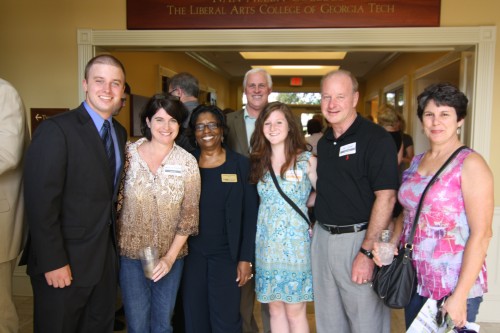
|
This Month's Banner Photo: The 2011 Family Weekend Reception
Ivan Allen College of Liberal Arts welcomed a full house of students and their parents for the 2011 Family Weekend Reception!
The annual reception provides opportunity for parents and students to visit with college administration, faculty, staff, and members of our undergraduate Student Advisory Board. Hosting the reception were Dean Jacqueline J. Royster (pictured 3rd from left); John Tone, Associate Dean of Undergraduate Studies (center); Elizabeth Miller, Manager of Student Affairs; and the IAC Student Advisory Board (SAB member Steven Waugh is on far left).
|
|

